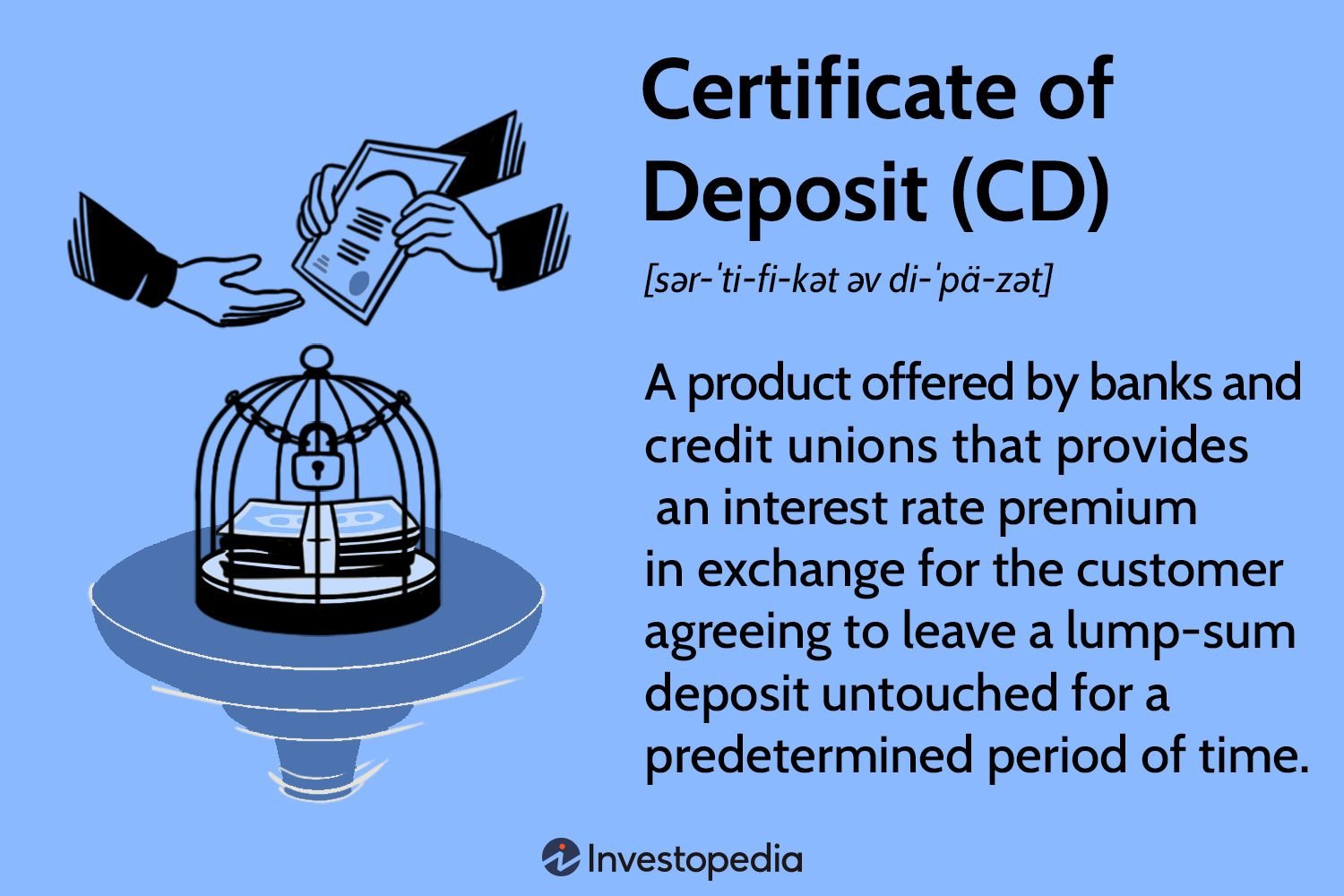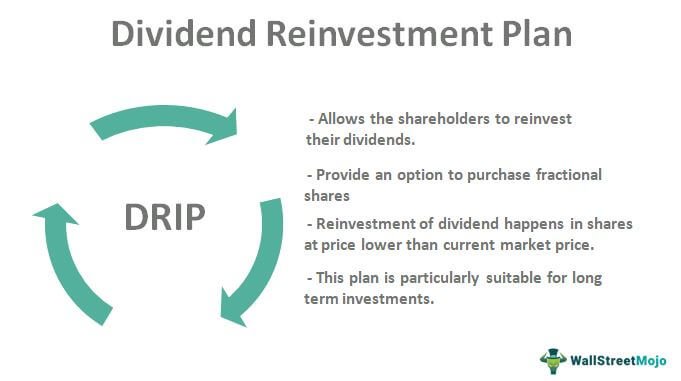Looking to grow your savings while still keeping your money secure? Curious about what a certificate of deposit (CD) entails? Well, you’ve come to the right place! A certificate of deposit, often referred to as a CD, is a financial instrument that allows you to deposit a certain amount of money with a bank or credit union for a fixed period of time, known as the term. In return for your deposit, the financial institution pays you interest on your money. Sounds intriguing, right? Let’s dive deeper into the world of certificates of deposit and explore their benefits and considerations.
What is a Certificate of Deposit (CD)?
A certificate of deposit (CD) is a financial product offered by banks and credit unions that allows individuals to save and earn interest on their money. It is a type of time deposit, meaning that the money is deposited for a specific period of time, known as the term, which can range from a few months to several years.
CDs are considered to be a low-risk investment because they are insured by the Federal Deposit Insurance Corporation (FDIC) up to $250,000 per depositor, per insured bank. They offer a predictable and guaranteed return on investment, making them an attractive option for those who prioritize safety over high returns.
CDs are often used by individuals who have surplus funds and want to earn interest on their savings without taking on the risk associated with other investment options. They provide a stable and secure way to grow your money, especially if you don’t need immediate access to the funds.
How Do Certificates of Deposit Work?
When you open a certificate of deposit, you agree to deposit a specific amount of money with the bank or credit union for a fixed period of time. In return, the financial institution promises to pay you a fixed interest rate over that period.
The key features of CDs include:
- Principal Amount: The initial amount of money you deposit, which is also known as the face value or the principal.
- Term: The length of time you agree to keep your money in the CD. It can range from a few months to several years.
- Interest Rate: The rate at which your money will grow during the term of the CD. It is expressed as an annual percentage yield (APY).
- Interest Payment: The interest earned on the CD can be paid out in various ways, including monthly, quarterly, semi-annually, or at the end of the term.
At the end of the CD’s term, known as the maturity date, you have the option to withdraw your principal and the accumulated interest or roll it over into a new CD. Rolling over means reinvesting the funds into another CD with a similar or different term, allowing your money to continue growing.
If you decide to withdraw your funds before the maturity date, you may incur an early withdrawal penalty, which is a fee imposed by the bank or credit union. The penalty amount varies depending on the financial institution and the length of time remaining until maturity.
Types of Certificates of Deposit
There are several types of certificates of deposit available to meet different financial goals and needs. Here are some common types:
1. Traditional CDs
Traditional CDs are the most common type of certificate of deposit. They have a fixed interest rate and term, and the interest is paid out at regular intervals or at maturity. Traditional CDs provide a predictable and stable return on investment, making them a popular choice for conservative investors.
2. High-Yield CDs
High-yield CDs offer a higher interest rate compared to traditional CDs. They may require a larger minimum deposit, and the interest rate is usually tiered, meaning it increases with higher deposit amounts. High-yield CDs are ideal for individuals who want to maximize their earnings on their savings.
3. Jumbo CDs
Jumbo CDs are certificates of deposit that require a large minimum deposit, typically $100,000 or more. In exchange for the larger deposit, they offer higher interest rates than regular CDs. Jumbo CDs are suitable for investors with a significant amount of money to invest.
4. Step-Up CDs
Step-up CDs have an interest rate that increases over time. They allow you to take advantage of rising interest rates while still enjoying the stability of a CD. With step-up CDs, the interest rate is predetermined at the beginning of the term and increases at specified intervals.
5. Bump-Up CDs
Bump-up CDs offer the option to increase the interest rate once during the term of the CD. If interest rates rise after you open the CD, you can “bump up” your CD to the higher rate offered by the bank. Bump-up CDs provide flexibility and the potential to earn more if interest rates go up.
Pros and Cons of Certificates of Deposit
Certificates of deposit offer several advantages and disadvantages that individuals should consider before investing their money. Here are some pros and cons:
Pros:
- Guaranteed Returns: CDs provide a fixed interest rate, ensuring a predictable return on investment.
- Low Risk: CDs are considered to be low-risk investments as they are insured by the FDIC.
- Stability: CDs offer stability and security for your money, making them suitable for conservative investors.
- Diverse Terms: CDs are available with various terms, allowing you to choose a duration that aligns with your financial goals.
- Easy to Understand: The concept of CDs is simple, making them accessible to individuals with little or no investment knowledge.
Cons:
- Low Returns: CDs tend to offer lower interest rates compared to other investment options, such as stocks or bonds.
- Illiquidity: The money invested in a CD is not easily accessible until the maturity date, reducing flexibility to use the funds when needed.
- Penalties for Early Withdrawal: Withdrawing funds before the maturity date may result in early withdrawal penalties.
- Inflation Risk: CDs may not keep pace with inflation, meaning the purchasing power of the invested funds may decrease over time.
- Opportunity Cost: By locking your money into a CD, you may miss out on other investment opportunities that offer higher returns.
Is a Certificate of Deposit Right for You?
Whether a certificate of deposit is right for you depends on your financial goals, risk tolerance, and investment timeline. Here are some factors to consider:
- Financial Goals: CDs are suitable for short-term savings goals, emergency funds, or as part of a diversified investment portfolio.
- Risk Tolerance: If you prefer low-risk investments and prioritize capital preservation over high returns, CDs may be a good option.
- Investment Timeline: CDs are ideal for funds you can afford to lock away for a specific period, without needing immediate access.
- Interest Rates: Compare the interest rates offered by different banks or credit unions to ensure you’re getting the best return on your investment.
- Inflation Considerations: If inflation is expected to be high, a CD may not be the best investment choice as it may not keep pace with rising prices.
It’s important to assess your overall financial situation and consult with a financial advisor before making any investment decisions.
What are Certificates of Deposit? (CDs)
Frequently Asked Questions
Frequently Asked Questions (FAQs)
What is a certificate of deposit (CD)?
A certificate of deposit (CD) is a financial product offered by banks and credit unions. It is a time deposit, meaning that you deposit a certain amount of money for a specific period of time, known as the term. In return for depositing your funds, you will earn interest on the amount invested.
How does a certificate of deposit work?
When you open a certificate of deposit, you agree to keep your money deposited for a fixed period, typically ranging from a few months to several years. During this time, the bank holds your funds, and you cannot withdraw them without incurring penalties. In return, the bank pays you interest on the principal amount deposited, which is usually higher than regular savings accounts.
What are the benefits of having a certificate of deposit?
Certificates of deposit offer several benefits. They provide a safe and secure way to save money as they are insured by the FDIC (Federal Deposit Insurance Corporation). CDs typically offer higher interest rates compared to regular savings accounts, making them attractive for individuals looking to grow their savings over a fixed period. They also offer a predictable return, as the interest rate is fixed for the duration of the CD.
Are certificate of deposits risk-free?
While certificates of deposit are considered low-risk investments, they are not entirely risk-free. The main risk associated with CDs is the opportunity cost. Once you deposit your funds into a CD, you cannot access them until the term ends without paying penalties. Therefore, if you have an emergency or need immediate access to your funds, you may face limitations. However, the FDIC insurance mentioned earlier ensures that even if the bank fails, your deposit up to $250,000 is protected.
Can I withdraw money from a certificate of deposit before it matures?
Yes, you can withdraw money from a certificate of deposit before it matures, but doing so may result in penalties. The specific penalties depend on the terms and conditions set by the bank or credit union where you hold the CD. It is important to carefully read and understand these terms before opening a CD to avoid any unexpected fees or charges.
What happens when a certificate of deposit reaches maturity?
When a certificate of deposit reaches maturity, you have several options. You can choose to withdraw the funds, including the interest earned, and close the CD. Alternatively, you can renew the CD for another term, allowing your funds to continue earning interest. Some banks also offer an automatic renewal option, where the CD renews without any action required from the account holder.
How is the interest on a certificate of deposit paid?
Interest on a certificate of deposit can be paid out in different ways depending on the terms of the CD. Some CDs offer monthly or quarterly interest payouts, while others may allow you to choose between receiving the interest on a regular basis or having it added to the principal amount. At the end of the CD term, you may also have the option to have the accumulated interest paid out along with the principal when you withdraw the funds.
Can I open multiple certificates of deposit?
Yes, you can open multiple certificates of deposit with different banks or credit unions. This can be advantageous as it allows you to diversify your investments and potentially benefit from different interest rates and terms. However, be sure to consider the management and tracking of multiple CDs to ensure they align with your financial goals and objectives.
Final Thoughts
A certificate of deposit (CD) is a secure financial instrument that allows individuals to invest and earn interest over a fixed period of time. By agreeing to lock their funds in a CD for a specified term, savers can enjoy higher interest rates compared to traditional savings accounts. CDs offer a low-risk investment option, as they are insured by the FDIC up to $250,000 per depositor. With a certificate of deposit, individuals can grow their savings steadily while having peace of mind knowing their money is secure. Considering a certificate of deposit can be a smart choice for those seeking stability and reliable returns.



